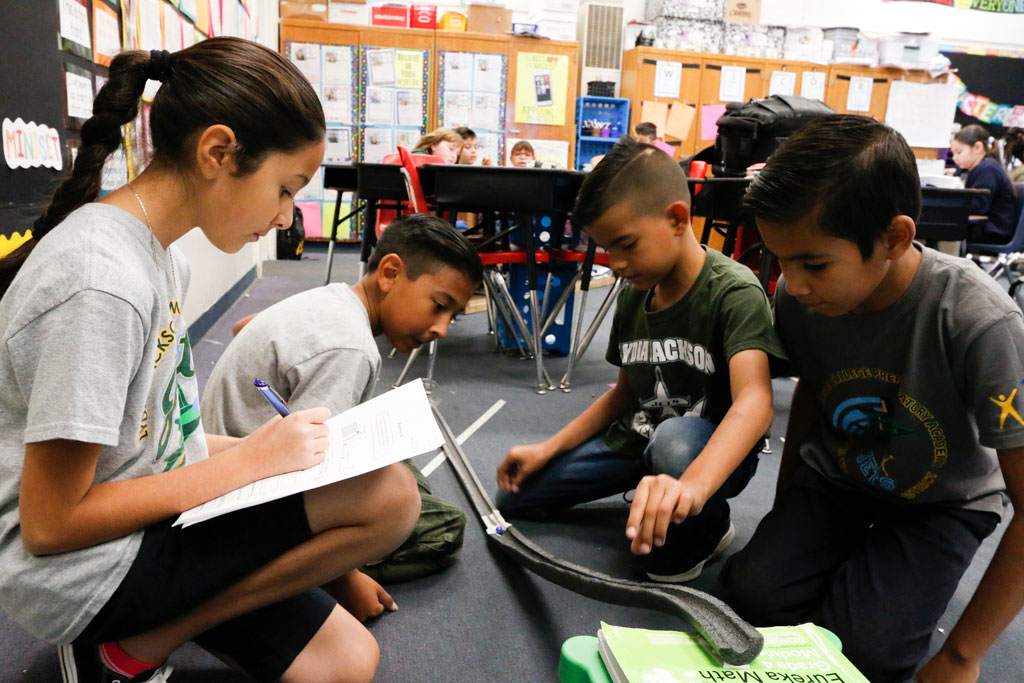Significant portions of English language arts (ELA) teachers across grade spans — including at the secondary level — reported frequently engaging their students in foundational reading skills, according to a RAND report released April 30.
Foundational reading skills involve how students learn to associate sounds with the letters in print and use this knowledge to identify new words.
Drawing on the spring 2023 American Instructional Resources Survey, researchers examined more than 3,500 K-12 teachers’ use of foundational reading activities in their instruction, comparing responses by grades taught, characteristics of their schools and classrooms (e.g., students’ race or ethnicity, English language proficiency and disability status) and state policy context.
Researchers noted that several policy initiatives undertaken by state leaders in recent decades to address the poor reading skills of America’s youth — including the adoption of the Common Core State Standards — have shifted how students learn to engage with reading.
For instance, many states have passed legislation that reflects a move away from whole language instruction and toward explicit and systematic instruction in the relationship between letters and sound and how to blend sounds to form words.
“Since 2013, more than half of states have passed bills that place new requirements around reading instruction, such as aligning professional development, coaching, and teacher preparation to evidence-based practices; providing teachers with high-quality instructional materials; and requiring teachers to engage in instructional strategies that are aligned to National Reading Panel recommendations,” according to the report. “Critically, many of these laws also provide additional funding to support this instruction. Studies evaluating the effectiveness of these laws have found promising results, with increases in ELA achievement in California, Michigan and Mississippi.”
Many of these laws, along with the Common Core foundational reading standards, emphasize the core components of evidence-based reading instruction, which studies show improves reading outcomes for all students, particularly those from both low-income backgrounds and students with disabilities.
However, RAND researchers noted, vulnerable student groups including students of color, those with individualized education programs (IEPs) and English learners (ELs) — may have less access to high-quality teachers, predominantly those who have the training to provide targeted reading instruction.
“Understanding the extent to which teachers engage their students in foundational reading activities across grades K–12 can inform state policymakers considering new initiatives or investments to improve reading instruction,” researchers wrote.
Key findings
- At least two-thirds of K-5 teachers and one-third of middle and high school teachers who teach ELA reported frequently engaging their students in foundational reading activities.
- Secondary ELA teachers who served schools with a majority students of color and who taught classes that consist of more than 10 percent English learners were more likely to report that their students frequently engaged in foundational reading activities.
- Elementary ELA teachers in classrooms in which 10-49 percent of students have IEPs were less likely to frequently engage their students in foundational reading activities.
- Elementary teachers in states with and without legislation relating to reading instruction were equally likely to report frequently engaging their students in foundational reading activities.
- Secondary ELA teachers in states with reading legislation were significantly more likely to report frequently engaging their students in these activities than secondary ELA teachers in states without such legislation, even though only one-quarter of states with these laws include requirements around secondary ELA instruction.
“Given that many secondary teachers are engaging their students in activities that explicitly target foundational reading skills, these educators might benefit from similar resources as those provided to elementary grade teachers to better serve their students who struggle with reading proficiency,” researchers wrote, noting the importance of ensuring such training prepares educators to best support various student groups. “States and school systems might also consider how they can create systems to support differentiated instruction to meet students’ specific needs.”





